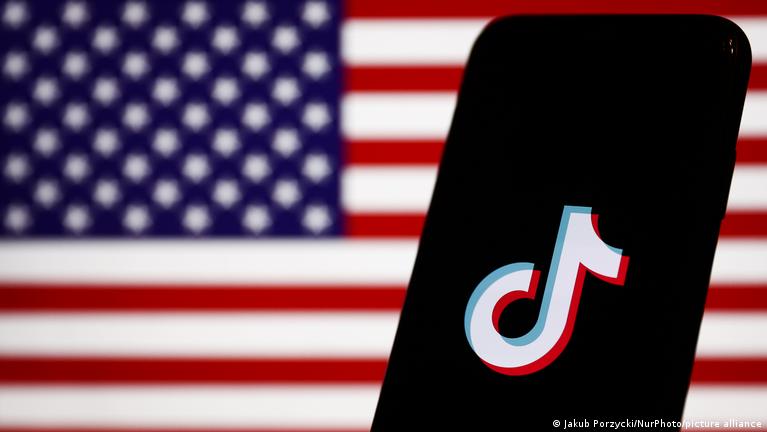The Chinese Ministry of Foreign Affairs responded swiftly just hours before the House of Representatives convened to vote on a crucial legislation concerning TikTok. The proposed bill would compel ByteDance, TikTok’s Chinese parent company, to sell the popular app to an American entity or face expulsion from the lucrative US market, where it boasts over 170 million users.
Table of Contents
In a fiery statement, Wang, a spokesperson for the Chinese Foreign Ministry, accused the United States of engaging in bullying tactics due to its inability to compete fairly. He asserted that such actions would disrupt market dynamics, erode investor confidence, and undermine the global economic order. Wang warned that the repercussions of these actions would eventually rebound on the US itself.
CNN reported that the House of Representatives passed the bill through a voice vote, indicating broad support for the measure. However, the bill’s fate hinges on the US Senate, as it must secure passage in both chambers before reaching the president’s desk for final approval.
CNN
The vote in the House saw a significant majority, with 352 in favor and 65 against, including 15 Republicans and 50 Democrats opposing the bill. Despite this strong showing, concerns remain over the bill’s prospects in the Senate.
The legislation comes amid growing security apprehensions surrounding TikTok, with several countries, including Australia, Belgium, and Canada, implementing either partial or complete bans on the app. India, in particular, was one of the first countries to ban TikTok over security concerns, with its government citing national security risks.
Former President Donald Trump’s expressed opposition to a TikTok ban adds a layer of complexity to the issue, especially considering the bill’s passage through a GOP-controlled House. The proposed legislation would effectively bar TikTok from US app stores unless it severs ties with its Chinese parent company.
In response to the impending ban, TikTok issued a statement expressing disappointment over the rushed legislative process and criticized the closed-door briefing held for lawmakers, which emphasized national security concerns surrounding the app. The company urged the Senate to carefully consider the facts and the significant impact the ban would have on the economy, small businesses, and the millions of Americans who rely on its platform.

As the bill’s journey through the legislative process continues, the fate of TikTok in the United States hangs in the balance, with both its future and the broader implications for international trade and technology policy at stake.
This report is auto-generated from ANI news service. FuseMedia24 holds no responsibility for its content.
What is TikTok ?
TikTok, a popular social media platform, has a complex history shaped by technological advancements, cultural shifts, and geopolitical dynamics. Here’s a concise overview of its evolution:
- Origins with Musical.ly: TikTok’s story begins with Musical.ly, an app founded in 2014 by Alex Zhu and Luyu Yang. Initially launched in Shanghai, Musical.ly gained popularity, particularly among teenagers in the United States and Europe.
- Acquisition and Merger: In 2016, Chinese tech company ByteDance, known for its Toutiao news aggregation app, acquired Musical.ly for approximately $1 billion. The following year, ByteDance merged Musical.ly with its own short-form video app, TikTok, which had launched in China in 2016.
- Global Expansion: After the merger, TikTok rapidly expanded its user base worldwide. It became a favorite among young people for its user-friendly interface, creative tools, and algorithm-driven content recommendations.
- Regulatory Challenges: TikTok’s rapid growth attracted regulatory scrutiny, particularly concerning data privacy and content moderation. Several countries, including India and the United States, initiated investigations into TikTok’s data handling practices.
- Security Concerns and Bans: In 2020, amid rising tensions between China and various countries, TikTok faced increased scrutiny over its Chinese ownership. India banned TikTok, along with other Chinese apps, citing national security concerns. The United States also threatened to ban TikTok unless it divested its US operations to an American company.
- Attempts at Acquisition: In response to the potential ban in the United States, ByteDance explored selling its US operations to American tech companies. While negotiations took place with Oracle and Walmart, no deal was finalized.
- Legal Battles and Uncertainty: The proposed bans and acquisition attempts led to legal challenges and uncertainty about TikTok’s future. TikTok contested executive orders seeking to ban the app in the US, resulting in court injunctions and ongoing litigation.
- Continued Popularity and Evolution: Despite challenges, TikTok continued to thrive globally, surpassing 1 billion monthly active users in 2021. The platform expanded beyond lip-syncing videos to include diverse content like dance challenges, comedy skits, and educational tutorials.
- Ongoing Developments: As of the latest available information, TikTok remains a dominant force in social media. However, its future is uncertain due to ongoing regulatory scrutiny and geopolitical tensions.
In summary, TikTok’s history demonstrates the impact of social media on culture and society, alongside the complexities of navigating privacy, security, and international relations in the digital age.
